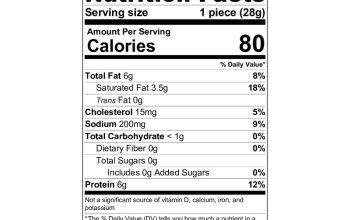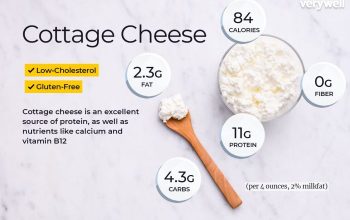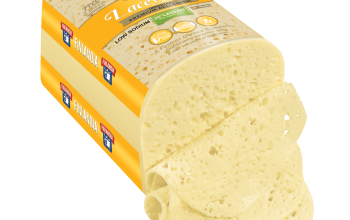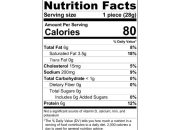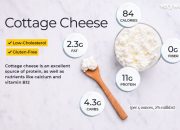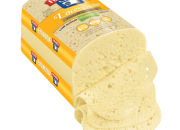Colby Jack Cheese Nutritional Profile

Colby jack cheese nutrition facts – Colby jack cheese, a blend of Colby and Monterey Jack cheeses, offers a unique flavor profile and a nutritional composition worth examining. This analysis details the macronutrient and micronutrient content of a typical serving, providing a comprehensive understanding of its nutritional value.
Macronutrient Composition of Colby Jack Cheese
The macronutrient content of Colby Jack cheese varies slightly depending on the brand and fat content. The following table presents an approximation based on a common serving size of one ounce (approximately 28 grams). It is important to always refer to the nutrition label on the specific product you are consuming.
| Nutrient | Amount per serving (1 oz) | % Daily Value | Unit of Measurement |
|---|---|---|---|
| Fat | 8-9g | 10-12% | grams |
| Saturated Fat | 5-6g | 25-30% | grams |
| Protein | 7g | 14% | grams |
| Carbohydrate | 0-1g | 0-1% | grams |
| Sugars | <1g | <1% | grams |
Micronutrient Content of Colby Jack Cheese
Colby Jack cheese is a good source of several essential vitamins and minerals, contributing to overall dietary intake. These nutrients play crucial roles in various bodily functions.
Colby Jack cheese provides significant amounts of:
- Calcium: Essential for strong bones and teeth.
- Phosphorus: Works with calcium for bone health and other bodily processes.
- Vitamin A: Supports vision, immune function, and cell growth.
- Vitamin B12: Crucial for nerve function and red blood cell formation.
- Riboflavin (Vitamin B2): Involved in energy metabolism and cell function.
- Zinc: Supports immune function and wound healing.
Calorie Content and Comparison to Other Cheeses
A one-ounce serving of Colby Jack cheese typically contains approximately 110-120 calories. This calorie count is comparable to many other cheeses, such as Monterey Jack and Cheddar. However, calorie content can vary based on the fat content of the specific cheese. For instance, lower-fat varieties of Colby Jack cheese will naturally have fewer calories per serving compared to full-fat options.
So you’re looking at Colby Jack cheese nutrition facts? It’s a tasty choice, but if you’re watching your portion sizes, you might want to compare it to other cheeses. For example, checking out the details on galbani string cheese nutrition can give you a good benchmark. Knowing the nutritional differences helps you make informed choices when comparing the nutritional content of Colby Jack to other cheeses like Galbani string cheese.
Higher-fat cheeses, such as Brie or Camembert, generally have a higher calorie count per serving.
Colby Jack Cheese and Dietary Considerations
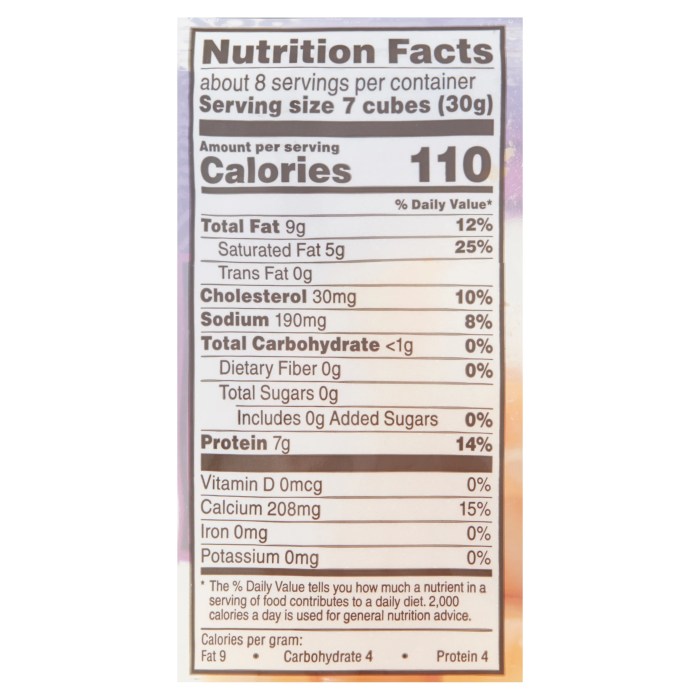
Colby Jack cheese, a blend of Colby and Monterey Jack cheeses, presents a unique nutritional profile that requires careful consideration within various dietary contexts. Its suitability depends heavily on individual dietary needs and restrictions, particularly concerning fat, protein, carbohydrate, and lactose content. Understanding these aspects is crucial for making informed choices about Colby Jack cheese inclusion in one’s diet.Colby Jack Cheese and Specific Diets
Colby Jack Cheese and Ketogenic/Low-Carb Diets, Colby jack cheese nutrition facts
Colby Jack cheese can be a valuable addition to ketogenic and low-carbohydrate diets due to its relatively low carbohydrate content. The cheese’s high fat content contributes to ketosis, the metabolic state where the body burns fat for energy. However, portion control is essential, as even low-carb diets require mindful calorie intake. A typical serving size should be considered within the context of the individual’s overall daily macronutrient targets.
For example, a 1-ounce serving of Colby Jack cheese might fit easily within a ketogenic diet’s daily carbohydrate allowance, but consuming larger quantities could potentially push the individual out of ketosis.
Colby Jack Cheese and High-Protein Diets
Colby Jack cheese contributes to a high-protein diet due to its protein content. While not as high in protein as some other cheeses, it offers a good source of protein alongside fat. For individuals focusing on high protein intake, Colby Jack can be part of a balanced diet that includes other protein-rich foods such as lean meats, poultry, fish, or legumes to achieve the desired protein goals.
Again, portion sizes should be carefully managed to ensure overall dietary balance.
Colby Jack Cheese and Lactose Intolerance
Colby Jack cheese contains lactose, a sugar found in milk. The amount of lactose varies depending on the aging process and manufacturing techniques. Individuals with lactose intolerance may experience digestive discomfort such as bloating, gas, or diarrhea after consuming dairy products, including Colby Jack cheese. The severity of these symptoms depends on the individual’s tolerance level. Aged Colby Jack cheese generally has a lower lactose content than its younger counterparts due to the lactose being broken down during the aging process.
However, people with severe lactose intolerance might still experience symptoms even with aged cheese. Lactose-free or reduced-lactose versions of Colby Jack cheese are available for those with more significant sensitivities.
Colby Jack Cheese and Cholesterol/Blood Pressure
Colby Jack cheese, like other cheeses, is relatively high in saturated fat and sodium. Saturated fat can contribute to elevated cholesterol levels, and high sodium intake can raise blood pressure. While moderate consumption of Colby Jack cheese might not significantly impact these factors for all individuals, those with pre-existing conditions such as high cholesterol or hypertension should monitor their intake and consult with a healthcare professional or registered dietitian to determine a suitable serving size within their overall dietary plan.
Consideration of overall dietary habits, including reducing other sources of saturated fat and sodium, is crucial in managing cholesterol and blood pressure. For instance, individuals at risk for cardiovascular disease might choose to limit their intake of Colby Jack cheese or opt for lower-fat alternatives.
Q&A: Colby Jack Cheese Nutrition Facts
Is Colby Jack cheese good for weight loss?
Colby Jack, like most cheeses, is relatively high in calories and fat. It can be part of a weight loss plan in moderation, but it shouldn’t be a staple.
How does Colby Jack compare to Cheddar nutritionally?
Nutritionally, Colby Jack and Cheddar are quite similar, with Colby Jack often having slightly less fat and slightly more moisture.
Can I eat Colby Jack if I’m lactose intolerant?
Colby Jack contains lactose, so those with severe lactose intolerance might experience digestive issues. Lactose-free alternatives exist, but check labels carefully.
Is Colby Jack cheese a good source of protein?
Yes, Colby Jack cheese is a decent source of protein, contributing to your daily needs.

